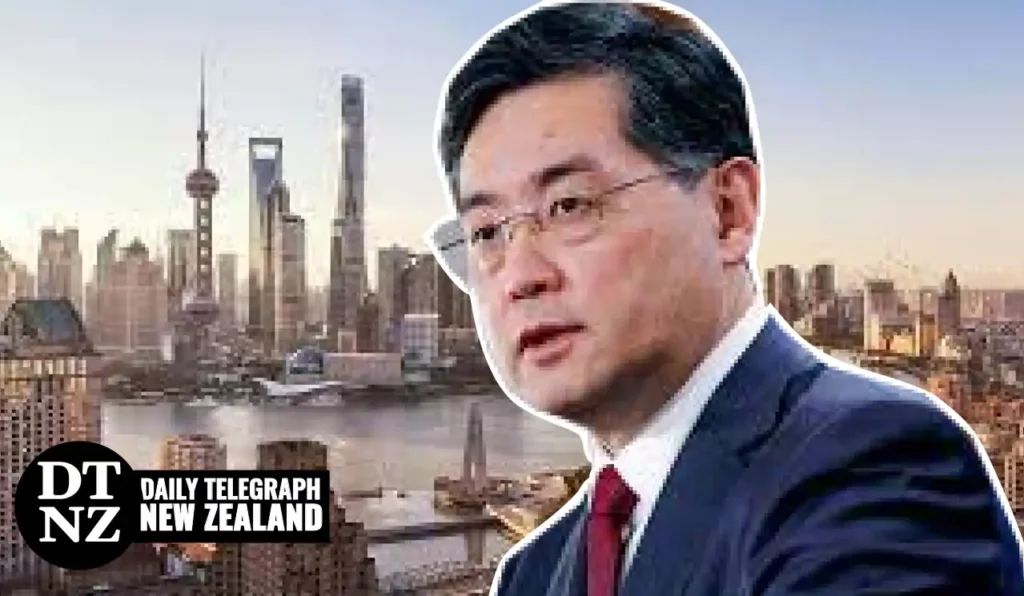Portrayed as a potential ‘purge,’ Qin Gang’s removal from post is likely simply a natural evolution of Beijing’s diplomatic goals.
Recently, the Western media have been speculating over the situation regarding China’s foreign minister Qin Gang. Following a brief disappearance, Qin was replaced as foreign minister by Wang Yi, who had previously held the office, while all reference of Qin was scrubbed from China’s foreign ministry website.
Naturally, some commenters describe this situation as a “purge” and present it in the most negative light possible, offering various interpretations regarding his fate or what may have happened. This makes it difficult to decipher the truth of the matter.
Western establishment media outlets love a “disappearance” story in China, usually because it allows them to dive into a negative discourse on communism and to depict a brutal state which can remove anyone without question through arrest, execution, or exile. Whereas in the West public figures and politicians who get caught up in scandals may opt to keep a low profile and avoid the media, with such instances in China every single development is interpreted by Western media as being a state-led communist purge on the individual in question. Other examples of this include Jack Ma of Alibaba and tennis player Peng Shuai. Their “low profile” is always assumed to be arbitrary rather than voluntary.
What the media love to ignore, however, is that China has a much more culturally sensitive rendering of “public face” than the West. While virtually every culture throughout the world places value on public esteem to varied degrees, China and Asian countries take this to a very high level, owing to the cultural legacy of Confucianism, which places emphasis on appearing virtuous and maintaining honour to the family name, and therefore it is much easier to lose public face over even minor misdemeanours than would slide in the West. Chinese people are, above all, much more sensitive and considerate in what they publicly profess than Westerners are.
While a potential scandal involving Qin is one theory, another could feasibly be a factional struggle going on within China’s foreign ministry, which explains the inconsistencies. Either way, Qin Gang wasn’t “purged.” The struggle, however, is between hardliners –dubbed “wolf warriors”– and doves, who prefer softer diplomacy. Qin is very much in the tough camp. He was China’s ambassador to the US for this very reason, demonstrating a tougher posture towards Washington. However, it might be noted that the actual post of China’s “foreign minister” is not truly the same as how we understand it in the West, but rather more of a figurehead or delegate role which does not actually hold policymaking power; that lies with the politburo.
And this is where Wang Yi comes in. Wang, the previous office holder who has reassumed the role, is also a member of the Politburo that is near the centre of power in the communist state. In the Politburo, he also holds the office of Director of the Foreign Affairs Commission. This means the real power in China’s diplomatic decision making is held by him under Xi Jinping, and not by Qin Gang, who occupied a hierarchically subordinate office of foreign minister. As it happens, Wang Yi is an extremely dovish individual who has a very moderate, restrained and soft-spoken form of diplomacy, which was a key driver of his success when he previously occupied the office. He is the opposite of the “wolf warrior” stereotype.
Currently, China’s diplomacy is once again reverting to a “dovish” phase. After putting the US out in the cold for months following the hysteria over the “spy balloon” incident earlier this year, Beijing is now trying to engage with Washington again more positively, as well as with its allies. Its strategy is to use diplomacy to try and cool down political tensions, prevent the US from building multilateral coalitions against it and from escalating a Cold War-like strategic environment based on the events in Ukraine and exploitation of Taiwan. China is seeking stability, and when this happens usually hawkish individuals such as Qin Gang are not “purged” but, rather, removed from the forefront of attention. A similar example is the reassignment of Zhao Lijian from China’s Foreign Ministry spokesperson to a less significant role.
But one thing is clear: Wang Yi holds real power, Qin Gang does not. Alarmist speculation about purges and disappearances glosses over the reality that in every state in the world, power struggles always play out in the assignment of individuals to various offices, often between various factions. This gives us insight into the direction policymaking is likely to take. The Qin Gang story is confusing to the outsiders and easy to exploit to vilify China, but paying more attention to what China is seeking to achieve in its relations with other countries may go some way towards explaining it.
